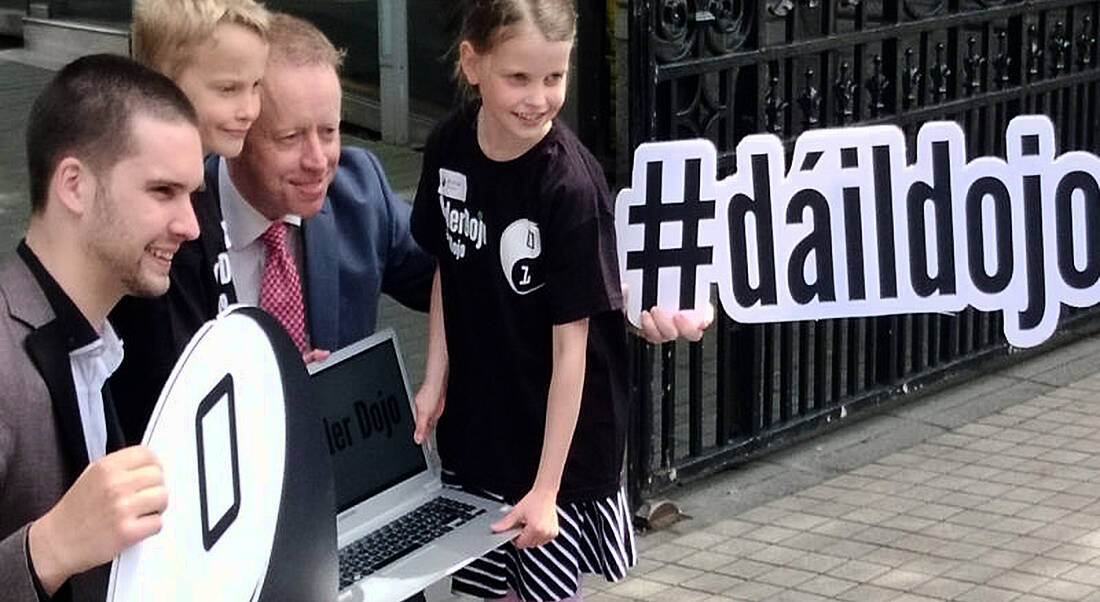Teachers teaching Junior Cert classes will from next year have the option of including 100-hour short courses on coding as part of the reform of the Irish curriculum, the Minister for Training and Skills Ciaran Cannon, TD, told Siliconrepublic.com on the occasion of the second CoderDojo to take place at Dáil Éireann.
It is just over two years since the first CoderDojo took place in Cork. Since then, the movement has grown to become a global phenomenon. On any given Saturday, between 10,000 and 20,000 children worldwide are taught to code in more than 120 dojos in 26 countries, including places such as LA, Silicon Valley, Tokyo, Africa and the Caribbean – all on a voluntary basis.
Yesterday, more than 70 children and their parents and mentors gathered at Leinster House in Dublin to demonstrate their computer coding skills to Oireachtas and Irish Government members.
Speaking with Siliconrepublic.com, Cannon said he believes coding should be part of the Irish curriculum and said that as part of the current reform of the second-level education system in the run up to Junior Cert, courseware for teachers developed by his department and CoderDojo will be offered to teachers.
“I see a lot of the learning derived from this movement – an extraordinarily exciting movement that has sprung up from the community – being incorporated.
“We are reforming the education system, starting with the Junior Cert. There are opportunities for 100-hour short courses for teachers to offer on any subject they deem of value to students.
“We are working with CoderDojo to develop a short course for Junior Cert and to hopefully continue that into transition year, as well.”
Formally introducing coding at post-primary level, Cannon said, would be a challenge but one worth taking on.
“Delivering curriculum change at any level is expensive and we’d need to deliver it at minimum expense. It certainly can and should happen.”
CoderDojo co-founder James Whelton, who won the Ben & Jerry’s social entrepreneur award in recent weeks, admitted he is still taken aback by the rapid success of the coding movement.
“It’s incredible and difficult to fathom how it got to this scale, particularly seeing kids today from all over the country with their parents and mentors, it’s a real testament to a real community effort.
“What’s next for CoderDojo will be better infrastructure. We want to see more dojos collaborating and we want to create a forum for kids to show off the work they’ve created.”
Whelton said the learning developed by CoderDojo could indeed be of use to the education system.
“We try to preserve the cool image and keep a healthy distance from formal education. It still has its place outside schools but people are working to bring coding curriculum into the school system,” he said.
It is worth noting that CoderDojo was formed in response to Whelton’s observation that coding – one of the most critical languages for economic success in the 21st century – wasn’t being taught in Irish schools. You could say he has more than proved his point.




